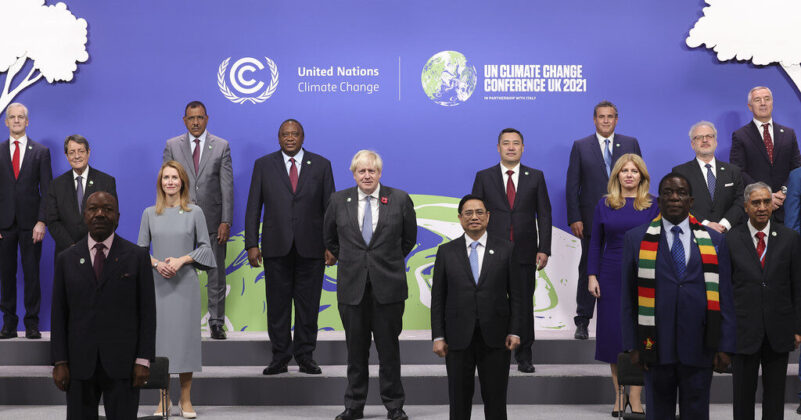

By Chris Clough
A poll of one million people across the world showed that two-thirds recognise climate change as a ‘global emergency’. Understandably, 45% of young people say anxieties about climate change affect their daily lives, driving the school strikes and climate movement forward.
Yet for millions the impact of climate change is not anxiety; it is disastrously affecting their lives right now. From the climate change-induced drought that has been a factor in civil wars from Syria to the Horn of Africa, to out-of-control wildfires in Australia and deadly floods in Northern Europe, humanity is experiencing a small taste of what is to come if we do not take immediate action.
1.5 degrees
We need to keep the rise in global temperature since the industrial revolution to below 1.5C to avoid catastrophe. To do this requires cutting CO2 emissions by 45% by 2030. Yet, even if the policies agreed at COP26 are followed through – which is extremely unlikely – we will still be on track for warming of at least 2.4C.
Despite sweeping conference promises since 1992, the percentage of primary energy use made up of fossil fuels has remained virtually static at 79%; 30 years of negotiations and ‘action’ have not quenched our thirst for oil. The growing crisis and deadlock in dealing with it led to hundreds of thousands protesting at COP26, despite covid and harsh policing.
Yet once again leaving the issue in the hands of politicians and business has ended in failure. A carefully stage-managed event saw COP26 start with a series of early pledges on deforestation and methane emissions to give the image of success. In terms of deforestation, similar empty promises were made in 2014, with the result that deforestation has… increased.
Plans to phase out coal were knocked back to the 2030s for developed nations and 2040s for the rest. The three top consumers of coal – China, India and the US, which make up 70% of world consumption – opted out entirely. Pledges to make the car industry greener were boycotted by four out of five top car manufacturers and three out of four top car producing nations.
The moderate International Energy Association stated in May that all new development of fossil fuel resources globally must end after this year to hit the 1.5 degree target, yet finance and investment will continue to pour through the loopholes left by COP26 straight into oil, gas and coal.
Yet the final declaration, the Glasgow Climate Pact, actually had its wording changed from ‘phasing out’ fossil fuels to ‘phasing down’. This is a declaration that the ruling class has no intention of ending fossil fuels, something the scientific community has proven is necessary to avoid disaster.
Politicians, the media and even some environmental campaigns hold out that 1.5C is ‘still alive’. The truth is we are nowhere near it and time is running out.
Built-in failure
Humanity is absolutely capable of solving the crisis and creating a sustainable society – it is the limits of capitalism that create the problem and make these conferences fail again and again.
A strategy relying on business to green itself is doomed from the start. The drive for profits, which is built into the fabric of capitalism, makes it incapable of making the necessary changes in the required timeframe.
Moreover capitalism is based on nation states, where each ruling class competes as a bloc to gain dominance over other countries. Cutting profits or hiking taxes for a transition weakens the corporations of one nation against their competitors on the world market. One country then refuses to act and more follow suit.
In particular, a transition means shutting down – and therefore seizing – the vast expensive infrastructure of the fossil fuel industry, something that has no precedent in history. Only a mass, revolutionary movement could force this to happen, so that’s what we need to build.
Unfortunately, the climate movement generally has not accepted this so far. Leaders like Greta Thunberg have inspired mass demonstrations and undeniably brought climate change to the forefront. They call for system change but do not even name the system – capitalism. Instead they aim to pressure its rulers into action when what we need is a strategy for abolishing it, through its overthrow.
The movement needs a new direction. Socialists must fight for an anti-capitalist programme combining class and environmental demands, building democratic united fronts connecting the environmental movement to working class organisations, aiming to build on and transform mass action against climate change into a revolutionary challenge to the system itself.